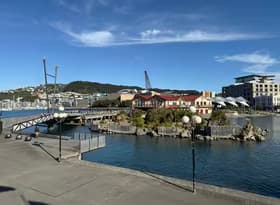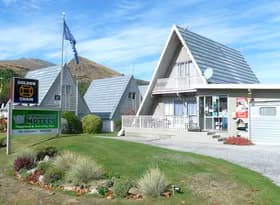Tourism: Facing the challenges of the future
John Key is so passionate about tourism that he made himself Minister of Tourism. The reason for his passion is obvious. It is an industry that builds on our uniqueness. Our magnificent landscapes, safe environment and low population density offer a unique experience to the tourist. But despite its obvious positives it is not clear that tourism sits comfortably in our vision of becoming a high-wage, high-skilled economy.
International tourists spent nearly $9 billion in New Zealand in 2007 making it our largest foreign exchange earner. We currently import considerably more than we export and without tourism our balance of payments deficit would be much larger. Tourism contributes about 5% of Gross Domestic Product making it comparable to agriculture in its direct contribution to our economy. Tourism spreads income earning opportunities around the country. Unlike many industries that are necessarily located in the large, wealthy centres, tourism extends its tentacles to all corners of the country. And tourism raises the value of our environment; without a pristine environment there would be few tourists.
Tourism in New Zealand has grown strongly over the past few decades. The unprecedented rise in wealth in the West and more recently Asia has resulted in a rapid increase in the number of people who indulge in international travel. At the same time the economic conditions in New Zealand have favoured the expansion of labour intensive industries such as tourism. Until the mid 2000s there was a plentiful supply of labour following the deep recession of the late eighties and strong migratory inflows since the beginning of this decade. A growing workforce has kept labour relatively cheap compared with capital (such as heavy machinery), which has benefitted labour intensive industries.
That tourism is labour intensive is often touted as a positive but the flip side of high labour intensity is low labour productivity. Tourism creates a lot of relatively low skilled, low wage jobs. New Zealand’s low labour productivity growth over the past decade is partly ascribed to the strong growth of labour intensive industries such as tourism and construction.
While labour-intensive economic growth is particularly attractive in our current time of growing unemployment queues, further down the line it will bump against our aspirations to become a high-skill, high-wage economy. We are heading into an era of enormous demographic change that will see a rapid growth in the size of the non-working population relative to the working population. Each working person will have to produce so much more just to maintain our current average income levels. To grow our average incomes under these demographic conditions will require a startling growth in productivity. It is not easy to imagine how tourism with its army of wait staff, bar tenders and cleaners will feature in the required leap in productivity.
As New Zealand pulls out of the current recession and labour force growth dwindles the labour and skill shortages of the mid-2000s will reappear. Wages will rise and labour intensive industries will face rapidly growing wage bills. In order to remain competitive and viable our tourism operators will either need to seek a source of reasonably priced migrant labour or find ways of offering higher value services with fewer staff.
Facing labour shortages and rising wage costs in the future the tourism industry is likely to lobby the government for more migrant labour. It will be a demand that requires a delicate balancing act from government. A certain level of labour shortage keeps employers on their toes. It forces them to think carefully about better ways of utilising our domestic labour or moving to higher value activities which are less reliant on labour and raise their productivity. But we need to avoid labour constraints creating crippling bottlenecks in the production chain of key industries (like leaving fruit on trees to rot because there is nobody available to pick them).
Using migrant labour also raises the issue of our society’s capacity to assimilate large numbers of relatively low skilled foreigners. We cannot afford the creation of an immigrant underclass with its associated social problems, as experienced in countries such as France and Spain.
Tourism is one of our key industries, not least for its contribution to our foreign exchange earnings. But its hunger for low skilled labour puts it at odds with our drive for higher productivity. If we starve it of migrant labour in our attempt to push it up the value chain we may kill the golden goose. Feeding it with a plentiful supply of migrant labour will sustain it but compromise our vision of a high wage, high skill economy and will raise the risk of social discord. Resolving this tension will require careful thought and forward planning. The current recession takes the pressure off the industry and provides a window of opportunity to put in place a strategy that will lead the industry through the next decade and beyond.











